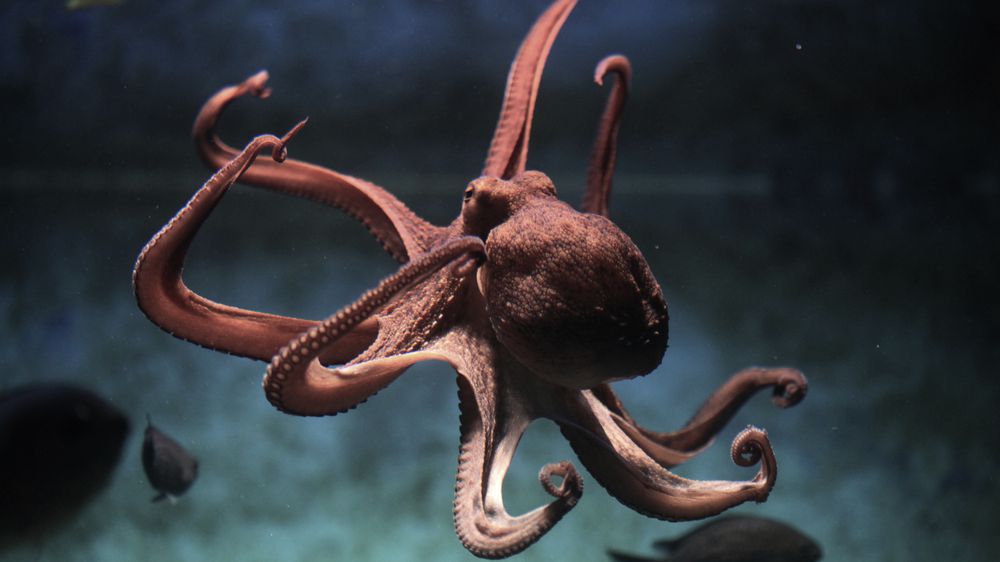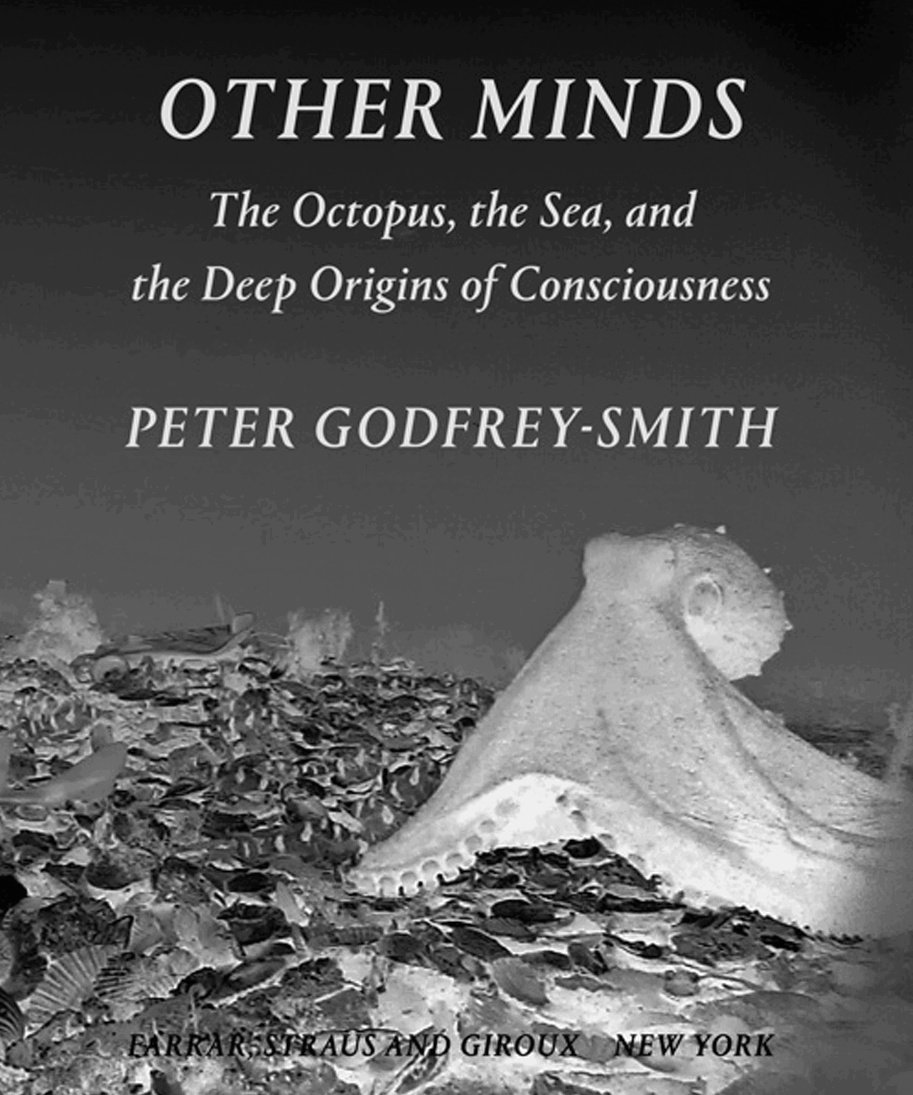In the early Edicarian period (635-541 million years ago) animals were relatively peaceful. Animals at this time were mainly scavengers and predation was not very common. That& #39;s why this period is also known as the garden of Edicarian.
A group of animals called molluscs may have had members such as Kimberella, although this may be contentious. Kimberella was a creature that probably crawled on the sea bed scavenging in search for food.
Slowly we enter the cambrian period (541-485 mya). Within this phase of history an explosion of body plans began to appear and with it the birth of predation. To combat this molluscs began to evolve shells. By hiding themselves in these shells they were able to defend themselves.
Some of these animals became several feet tall extended their shells. More importantly however many evolved to take advantage of wstwe streams. By housing gasses underneath their shells they achieved buoyancy and were thus able to swim or bounce across the sea bed.
At this stage we should note that we are not talking about the evolution of all molluscs but a subs-class known as the cephalopods.
Lifting off from the sea floor meant these early creatures could now use their tentacles for something else other than traversing the sea bed.
Lifting off from the sea floor meant these early creatures could now use their tentacles for something else other than traversing the sea bed.
The early cephalopods propelled themselves by harnessing a jet stream of water through a siphon. Their tentacles now being used to latch onto enemy prey and predators.
The once peaceful crawler of the Ediacaran seabed had now become a aquatic fighter jet.
The once peaceful crawler of the Ediacaran seabed had now become a aquatic fighter jet.
What happens next is both frightening and extraordinary.
The early cephalopods begin to lose their shells all however except one: the nautilus. A lone survivor from an ancient world.
On the other side of the branch the shell forfeiting cephalopod further divided into two.
The early cephalopods begin to lose their shells all however except one: the nautilus. A lone survivor from an ancient world.
On the other side of the branch the shell forfeiting cephalopod further divided into two.
Knowledge of this shell losing ancestor is not known but the two organisms it gives rise to are the shell internalizing squid and the complete shell losing octopus.
Together these three, the nautilus, cuttlefish squid and octopus make up the cephalopods living today.
Together these three, the nautilus, cuttlefish squid and octopus make up the cephalopods living today.
What is extraordinary in particular about the octopus is its evolutionary chess-move to give up its shell entirely and gamble vulnerability for unparalleled flexibility in form. An animal that can almost squeeze itself through something the size of its own eye.
What is startling about the octopus is its unique evolutionary history. Whilst primates, mammals, and birds can be said to be intelligent becsuse they relate to one another, octopuses can& #39;t. Molluscs divided from us a very long time ago and yet the octopus has become intelligent.
What this demonstrates is that the mind and intelligence has developed twice over. One line has gone down to animals close to us (mammals, primates and even birds) and one down to the octopus.
This leaves it with it& #39;s own unique history and perhaps nature of mind itself.
End/
This leaves it with it& #39;s own unique history and perhaps nature of mind itself.
End/

 Read on Twitter
Read on Twitter




